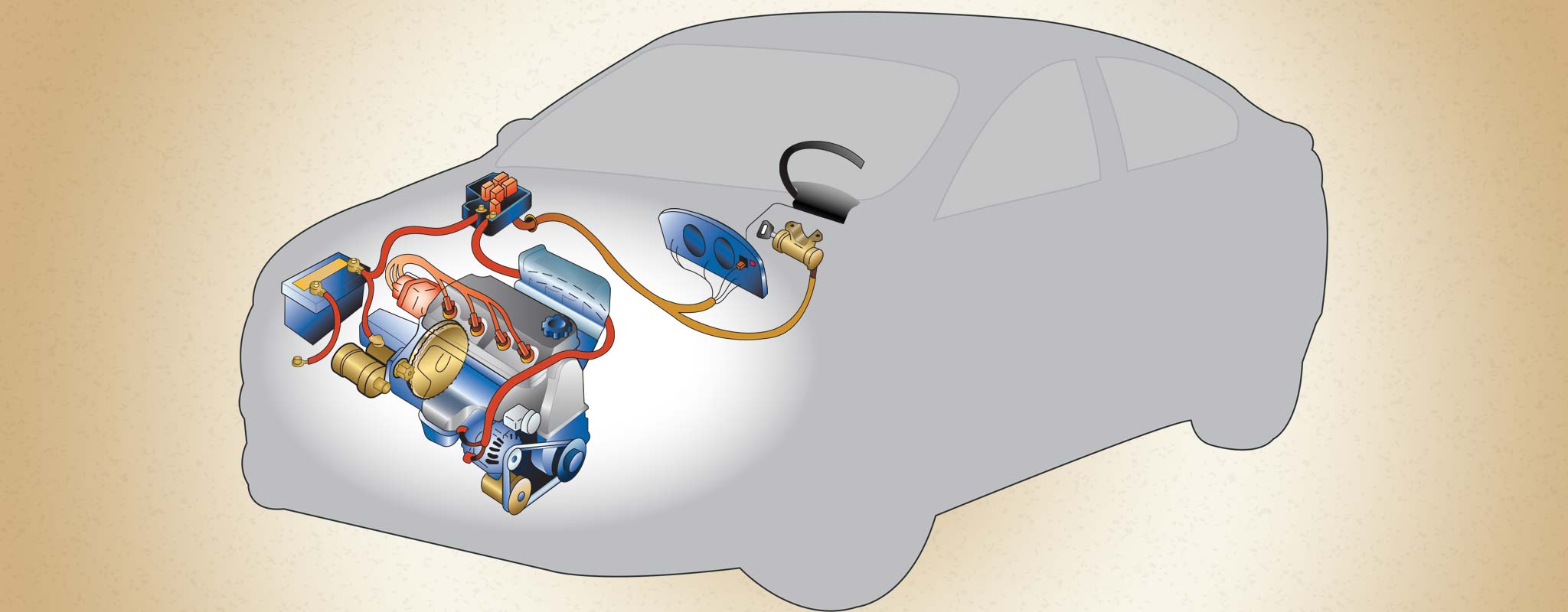If your car won’t start immediately after you turn it off, it could be due to a faulty ignition switch or a problem with the fuel system or battery. We will explore some possible reasons for this issue and provide some troubleshooting tips to help you get your car back on the road quickly.
Whether it’s a weak battery, a bad starter motor, or a faulty ignition switch, diagnosing the cause of a car not starting after being turned off can be a frustrating experience. By understanding the potential causes and following these troubleshooting steps, you can save time and money by fixing the problem yourself or knowing what to expect when you take your car to a mechanic.

Credit: www.lesschwab.com
Common Causes Of A Car Not Starting Immediately After Turning Off
When a car won’t start right after turning off, several common causes can be at play. One potential culprit is a dead battery, which may need to be recharged or replaced. Another possibility is a faulty starter motor, which can prevent the engine from cranking properly.
Fuel delivery issues, such as a clogged fuel filter or a malfunctioning fuel pump, may also hinder immediate starts. Ignition problems, such as a worn-out ignition switch or a faulty spark plug, can cause similar difficulties. Additionally, an electronic system malfunction, such as a faulty sensor or a malfunctioning engine control module, can contribute to the problem.
It is essential to diagnose and address these issues promptly to ensure a smooth start every time the car is turned off.
Steps To Troubleshoot Your Car Not Starting Right After Turning Off
If your car won’t start right after turning off, there are several steps you can follow to troubleshoot the issue. First, check the battery connections to ensure they are secure and free from corrosion. Next, test the battery voltage to determine if it is still holding a charge.
Inspect the starter motor for any signs of damage or malfunction. Verify that fuel is being delivered properly to the engine. Examine the ignition system, including the spark plugs and ignition coil, for any potential issues. Finally, diagnose any electronic system faults that may be affecting the car’s starting capabilities.
By carefully following these steps, you can identify and address the problem, getting your car back on the road in no time.
Preventative Measures To Avoid Car Starting Issues After Turning Off
Prevent car starting issues after turning off by following preventative measures. Regular battery maintenance ensures a reliable start. Timely inspections of the starter motor can detect and address any problems early on. Keep the fuel system in good condition with regular maintenance.
Proper ignition system maintenance helps to avoid starting problems. It is important to conduct regular electronic system check-ups to identify and fix any issues. These measures will ensure that your car starts smoothly every time you turn it off. So, take the necessary steps to prevent any inconvenience and keep your car running efficiently.
Conclusion
Based on the common causes discussed, it is important to troubleshoot and address the issue of a car not starting right after turning off. Electrical problems such as a faulty ignition switch or a drained battery are frequent culprits that can easily be diagnosed and resolved.
Routine maintenance, such as checking the fuel system and ensuring clean connections, can also prevent future occurrences of this problem. Additionally, being aware of external factors such as extreme weather or even the type of gasoline used can aid in preventing starting issues.
Remember to stay vigilant and listen for any abnormal sounds or observe any warning lights on your dash, as they can provide valuable clues to the source of the problem. Overall, with proper care and proactive troubleshooting, you can ensure that your car starts reliably each time you turn it off.
Stay informed, stay prepared, and enjoy driving with peace of mind.
